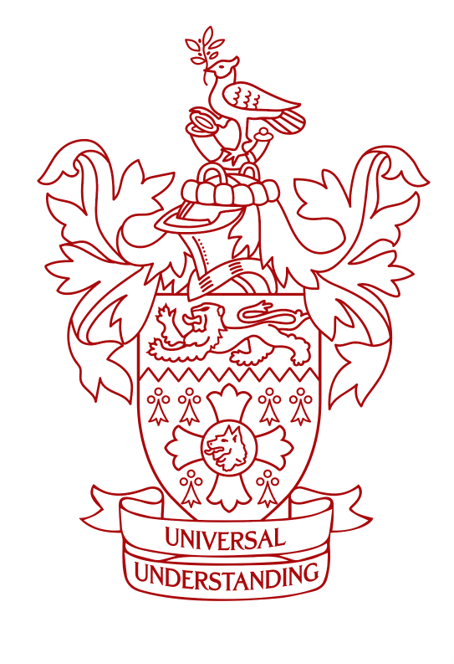
CIOL encourages the learning of all languages in support of our motto "universal understanding" and strives to reverse the growing deficit in language skills in the UK, at a time when global demand for multilingualism is expanding.
Those who only rely on English alone and do not embrace the learning of other languages inevitably deny themselves the opportunity to fully access other cultures through language.
However, with around 1.6 billion people worldwide who speak English to a useful level - but are not first language English speakers - CIOL also seeks to support adult second language learners of English to meet the ambitions of our Royal Charter.
"Bilingualism lets you have your cake and eat it. The new language opens the doors to the best jobs in society; the old language allows you to keep your sense of 'who you are'. It preserves your identity. With two languages, you have the best of both worlds."
David Crystal OBE, FBA, FLSW, Fellow and Vice-President of the Chartered Institute of Linguists (CIOL) and academic author best known for his works on linguistics and the English language.
English is used globally by thought leaders, academics, creative thinkers, business decision-makers, young people, movers and shakers and many millions of people of all backgrounds and ages who want a better life for themselves or to make a difference in the world.
It has become the default operating system of much of the global conversation. Mastery of English contributes very directly to an individual's economic potential and is becoming a core criterion for determining employability. English eases trade between countries, facilitates dialogue and builds common purpose, making it an essential tool for sustainable global development.
Many companies have adopted English as their business language to enhance productivity and growth. English has become a lingua franca in academia, and many of the world's leading universities are located in English-speaking countries or offer English-medium education. Around the world, English is increasingly valued as a medium of instruction in universities even in countries where it is not an official language.
"English has been this vacuum cleaner of a language, because of its history meeting up with the Romans and then the Danes, the Vikings and then the French and then the Renaissance with all the Latin and Greek and Hebrew in the background."
David Crystal OBE, FBA, FLSW, Fellow and Vice-President of CIOL.
It is this mish-mash of origins, its irregularity and its status as a global lingua franca that make English such a challenging language to perfect.
- English has a complex grammar system with many irregular verbs and noun plurals. There are many exceptions to rules, making it difficult to master. English pronunciation is also a challenge as it has a wide range of sounds, and some of them are difficult to pronounce for non-native speakers. The same words can be also be pronounced differently depending on the context and regional dialects. Some of the features of English include:
- English also has a large vocabulary with many words that have multiple meanings, making learning and remembering new words challenging, especially for new language learners.
- It is full of idiomatic expressions and colloquialisms that are not easily understood by non-native speakers, and these expressions can vary widely from region to region and can be difficult to master.
- English spelling can be confusing, with many words that are pronounced differently than they are spelled, and many words that may be similar in spelling but have different meanings.
- There are many poles of first-language English-speaking from the UK to the Americas, Africa and Australisia all with their own character and characteristics.
- Finally English has been endlessly enriched by 'loan words' adopted from other languages, which are both welcome discoveries for people who share their language heritage, but more difficult to decypher for those who do not.
"The art of conversation is the art of hearing as well as of being heard."
William Hazlitt, The Plain Speaker, 1826.
While many adults are proficient in reading and writing English (and technological aids such as Google Translate and ChatGPT may further aid written communication) the ability to speak comfortably and fluently in English is often more demanding - but often indispensable for effective professional communication.
To be a good English speaker in the global world we live in takes a good vocabulary range and grammatical accuracy, fluency and readily intelligible pronunciation, and crucially, the skills of turn-taking and interaction that define human-to-human conversational communication.
CIOL’s English spoken language framework sets out characteristics of high level Professional English speakers with the following descriptors:
If you are an adult advanced speaker of English as a second or additional language, you may want to test and prove those skills with CIOL’s Certified English speaking test.
"The enduring importance of language learning simply cannot be overstated in today's globalised world."
CIOL Chief Executive, John Worne.
The Chartered Institute of Linguists recognises and encourages the learning of all languages, including English, to promote our Royal Charter purpose of contributing to international goodwill.
While English has become the lingua franca of business, academia and global conversation, mastering it can be challenging due to its varied origins, complex grammar system, wide range of sounds, large vocabulary, idiomatic expressions, colloquialisms and often confusing spelling. Nevertheless, being a proficient speaker of English is an indispensable aid to effective professional communication for those linguists who have it. CIOL's Certified English speaking test is a means for advanced adult speakers of English as a second or additional language to demonstrate their language proficiency to the world as well as a route to the recognition that comes with CIOL membership.
By supporting adult speakers and learners of English and promoting all language learning, CIOL seeks to contribute to universal understanding, dialogue and sustainable global development, and to help English-speaking linguists to be recognised and to access CIOL membership and wider opportunity through their language skills.
